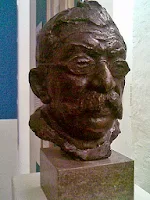Votes and Votic language
Ingria
The Ingrians are the indigenous people of historical Ingria. With expansion of the Principality of Moscovy north they became Russian Orthodox. Later Lutheran Finns from Finland moved to an area of what is now Russia on the southeast shore of the Gulf of Finland since the 17th century. Historical Ingria (Finnish: Inkeri or Inkerinmaa; Russian: Ингрия, Ingriya, Ижорская земля, Izhorskaya zemlya, or Ингерманландия, Ingermanlandiya; Swedish: Ingermanland; Estonian: Ingeri or Ingerimaa) is the geographical area, located along the southern shore of the Gulf of Finland bordered by Lake Ladoga on the Karelian Isthmus in the north and the River Narva on the border with Estonia in the west. Ingria became a province of Sweden in the Treaty of Stolbovo in 1617 that ended the Ingrian War, fought between Sweden and Russia. In 1710, Ingria was designated as the Province of St. Petersburg and in 1927 as Leningrad Province. In the Treaty of Nystad, Ingria was formally transferred back to Russia. Its russification was nearly complete by the 1930s, and today, it is the northwestern anchor of Russia, its "window" on the Baltic Sea, with Saint Petersburg as its center.
The Orthodox Izhorians, along with the Votes, are the indigenous people of historical Ingria (Inkeri in Finnish). However, after the Swedish conquest the Ingrian Finns, descendants of 17th century Lutheran emigrants from present-day Finland became the majority in Ingria.
Ingria as a whole never formed a state (cf., however, North Ingria); the Ingrians, understood as the inhabitants of Ingria regardless of ethnicity, can hardly be said to have been a nation, although their "nationality" was recognized in the Soviet Union; as a ethnic group, the Ingrians proper, Izhorians, are close to extinction together with their language. This notwithstanding, many people still recognize their Ingrian heritage.[2]
The historic Ingria covers approximately the same area as Gatchinsky, Kingiseppsky, Kirovsky, Lomonosovsky, Tosnensky, Volosovsky and Vsevolozhsky districts of modern Leningrad Oblast as well as the city of Saint Petersburg.
Votes
Votes (also called Vod) are a people of Votia in Ingria, the part of modern day northwestern Russia that is roughly southwest of Saint Petersburg and east of the Estonian border-town of Narva. Their own ethnic name is vadjalain (plural: vadjalaizõt). The Finnic Votic language spoken by Votes is close to extinction. Votians were one of the founding people of Veliky Novgorod. The Votic language is still spoken in three villages of historical Votia and by an unknown number of fluent Votic speakers in the countryside. The villages are Jõgõperä (Krakolje), Liivtšülä (Peski), and Luuditsa (Lužitsõ).[3] There is a desire to protect and revive the Votic language from extinction.
Votic language
Votic or Votian (vađđa ceeli or maaceeli – also written vaďďa tšeeli, maatšeeli[1]) is the language spoken by the Votes of Ingria. It is closely related to Estonian and belongs to the Finnic branch of the Uralic languages. Votic is spoken only in Krakolye and Luzhitsy, two villages in Kingiseppsky District, and is close to extinction (Language death). In 1989 there were 62 speakers left, the youngest born in 1938. In its 24 December 2005 issue, The Economist wrote that there are only approximately 20 speakers left.[2] Some linguists[who?] have claimed that Votic is actually a dialect of Estonian.[3]
In the 19th century it was already declining in favour of Russian (there were around 1,000 speakers of the language by the start of the World War I), but its decline was accelerated as Joseph Stalin took power. WWII had a devastating effect on the Votic language, with the number of speakers considerably decreased as a result of military offensives, forced migration to Finland under the Nazi regime, and the Stalinist policy of "dispersion" immediately after the war. Since then, the Votes have, as far as possible, concealed their Votic identity, pretending to be Russians in the predominantly Russian environment.
Votian proverb
@ e̮ma silmiz ed näe irttätŝi, a te̮izē silmɨz näed i pikkaraizē roitū.
Idiomatic translation: You see the splinter in another's eye but fail to see the beam in your own.
References
Ingria
[1]^ Based on Räikkönen, Erkki. Heimokirja. Helsinki: Otava, 1924.
[2]^ a b c d e f g h i j Kurs, Ott (1994). Ingria: The broken landbridge between Estonia and Finland. GeoJournal 33.1, 107-113.
Votic language
[1]^ V. Černiavskij. "Vaďďa tšeeli (Izeõpõttaja) / Водский язык (Самоучитель) ("Votic Self-Taught Book")" (in Russian) (PDF). Retrieved 2009-04-17.
[2]^ Staff writer (December 24, 2005 – January 6, 2006). "The dying fish swims in water". The Economist: pp. 73–74.
[3]^ Paul Ariste: Eesti rahva etnilisest ajaloost. Läänemere keelte kujunemine ja vanem arenemisjärk. Artikkeli kokoelma. Eesti Riiklik Kirjastus, 1956
http://en.wikipedia.org/wiki/Ingria
http://en.wikipedia.org/wiki/Votes
http://en.wikipedia.org/wiki/Votian
http://en.wikiquote.org/wiki/Votian_proverbs




_-002.jpg)




